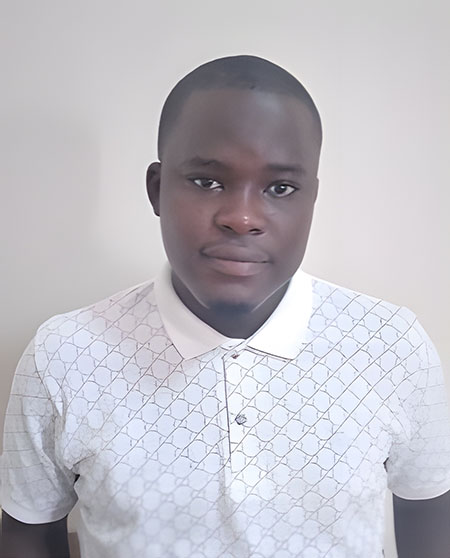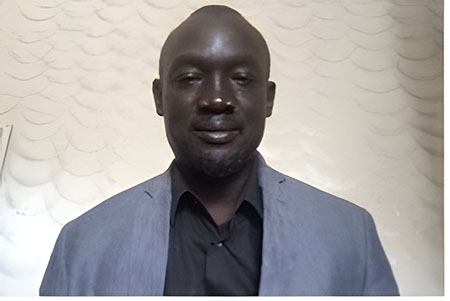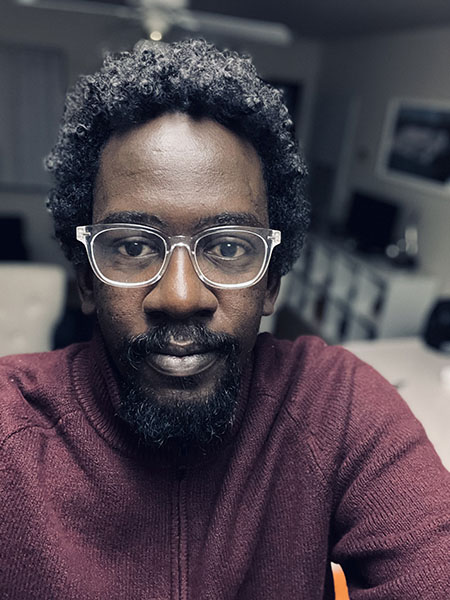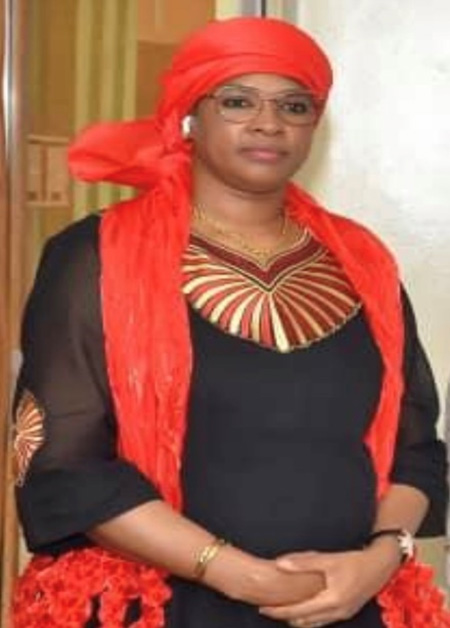ISRA-CERAAS
Khalil Kane
Co PI
Cyril Diata
Sorghum Lead
Cyril Diatta was born in May 1981 at Boutegol, Senegal. He holds a Master Degree in agronomy and crop protection at the National High School of Agronomy (ENSA) / University of Thies, in 2011. Holding a position as research assistant at the Senegalese Institute for Agricultural Research (ISRA) in 2012, he works as sorghum breeder under the supervision of the senior scientist Dr Ndiaga CISSE at Regional Research Centre for the Improvement of Crop Adaptation to Drought (CERAAS) of Thies. He completed a PhD in plant breeding from the West Africa Centre for Crop Improvement / University of Ghana in 2016. These ten last years He’s study focused on the development of high yielding tannin-free and quality grain varieties that are resistant to sorghum grain mold. He participated to the release of several tannin-free sorghum varieties together with Dr. Ndiaga CISSE. Currently, he led the sorghum breeding program of the National Research Centre of Agronomy (CNRA) of Bambey and participates to the teaching and training of students at several universities of Senegal.

Oumar Diack
Pearl Millet Lead
Oumar Diack is a PhD in Plant breeding and plant biotechnology.
He has already worked on the genetic diversity and adaptation of useful plants in Senegal such as pearl millet. He is interested in genetics, genomics, bioinformatics and applying plant biotechnology tools in understanding plant diversity and adaptation and their use in plant breeding. He is currently in charge of the Senegalese pearl millet breeding program at ISRA.

Khalil Kane
Wheat Lead
Researcher at the Senegalese Institute of agricultural research (ISRA) specifically at the regional center of excellence for drought adaptation (CERAAS) since 2014. Lecturer at the University Cheikh Anta Diop of Dakar (UCAD), University of Sine Saloum (USSEIN) and at the National Superior School of Agriculture (ENSA) of the University of Thies. His research program focuses on the identification and characterization of genetic traits that give cereals and legumes i) better adaptation to abiotic and biotic stresses, ii) better nutritional quality. Genetic traits are either QTLs, genes that code for proteins, metabolites, fats, vitamins, and minerals. The genetic and biochemical characterization of such traits by genomic, proteomic and metabolomic approaches will generate knowledge and technologies applicable in breeding and variety improvement programs. The final objective is to contribute to the development and promotion of varieties of cereals or legumes with high nutrient content, high productivity and adapted to environmental constraints.

Modou Mbaye
Phenomics Lead
I'm a researcher at the Senegalese Institute of Agricultural Research (ISRA), and I'm based at the Regional Center of Excellence on Dry Cereals and Associated Crops (CERAAS). My work primarily revolves around modernizing plant breeding programs in response to climate change, with a focus on optimizing water usage and implementing advanced monitoring techniques for food production in Africa. I’m using cutting-edge Artificial Intelligence-based imaging technologies, and high-throughput phenotyping. My research focuses on the integration of advanced remote sensing, machine learning, deep learning, and computer vision for agricultural applications. Currently, I am working on: utilizing digital technology to enhance agricultural productivity, efficiency, and sustainability, harmonizing essential satellite remote sensing data products for the agricultural sector, designing drone-based imaging platforms for precision agriculture and modelling, quantifying and modelling crop stress for accurate assessment, and harnessing the power of multi-source remote sensing to gain comprehensive insights.

Marème Niang-Belko
Marème is an agronomist and gender specialist who researches the influence of abiotic stress on crop growth, development, and yield. Her work identifies phenotypic and genetic variation and uses physiological information to expedite breeding efforts and enhance crop performance. Her leadership of a sesame research program has released five high-yielding, drought-tolerant varieties, important in harsh Sahelian environments. One of these widely used varieties is high in iron – a quality especially important to women.
With more than 16 years of experience in agronomy, plant physiology, and breeding, Marème conducts research across agricultural value chains, ensuring that research is relevant to farmers and consumers. She has co-developed and led programs and policies (such as ISRA-CERAAS’s IDEA) that support which women and girls as as they pursue careers in the agricultural sciences . Marème is a mentor for many young scientists. Several of her students have graduated and published articles in high impact factor journals. Her influence is far reaching, having worked with national, regional, and international partners (including the EU, World Bank, USAID, KOPIA-RDA, OCRI CAAS, and Henan Institute). Her research and leadership contributions have been instrumental for improving agricultural production and food security throughout West Africa.